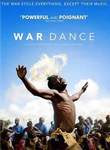Movies about Idi Amin
Idi Amin was a brutal dictator in Uganda throughout the 1970s. During his time in power, hundreds of thousands of people were murdered. These were dark years for Uganda.
 1) General Idi Amin Dada: A Self Portrait (1974). A french documentary filmed with the full permission of Amin. A rare opportunity to see and hear Amin in his own words. Needless to say, he was not happy with the final result. I would suggest watching this movie after already becoming somewhat knowledgeable of Amin and his reign. Since this documentary came out over 30 years ago while Amin was still in power, it does not set up much historical context. This film is most helpful in getting a deeper understanding of Amin.
1) General Idi Amin Dada: A Self Portrait (1974). A french documentary filmed with the full permission of Amin. A rare opportunity to see and hear Amin in his own words. Needless to say, he was not happy with the final result. I would suggest watching this movie after already becoming somewhat knowledgeable of Amin and his reign. Since this documentary came out over 30 years ago while Amin was still in power, it does not set up much historical context. This film is most helpful in getting a deeper understanding of Amin. 2) Raid on Entebbe (1977). A made for TV docu-drama staring Peter Finch, Charles Bronson, and others. Based on the real events of an Israeli military assault on the Entebbe Airport in Uganda, it pretty much sticks to the facts and is enjoyable. As a late '70s TV movie, the quality is limited and the pacing is somewhat slow, but I still found it helpful to watch a reenactment of a Palestinian airplane hijacking involving Uganda and Amin.
2) Raid on Entebbe (1977). A made for TV docu-drama staring Peter Finch, Charles Bronson, and others. Based on the real events of an Israeli military assault on the Entebbe Airport in Uganda, it pretty much sticks to the facts and is enjoyable. As a late '70s TV movie, the quality is limited and the pacing is somewhat slow, but I still found it helpful to watch a reenactment of a Palestinian airplane hijacking involving Uganda and Amin. 3) Last King of Scotland (2006). A recent movie revealing Amin through the lens of his (fictional) personal physician. Forest Whitaker won an Oscar for his portrayal of Idi Amin. This film effectively displays the brutality of the Amin regime, however I found the nudity and sex inappropriate and unnecessary. The violence is also quite graphic at times. As a result, I have to issue a strong caution with this movie.
3) Last King of Scotland (2006). A recent movie revealing Amin through the lens of his (fictional) personal physician. Forest Whitaker won an Oscar for his portrayal of Idi Amin. This film effectively displays the brutality of the Amin regime, however I found the nudity and sex inappropriate and unnecessary. The violence is also quite graphic at times. As a result, I have to issue a strong caution with this movie.Movies about the Lord's Resistance Army
The Lord's Resistance Army (LRA) is a rebel guerrilla army at war with the Ugandan government. This conflict has been going on for over 20 years, leaving many dead, villages overrun, and numerous children forced to become soldiers. Mainly operating in northern Uganda, the LRA is led by Joseph Kony.
1) Invisible Children (2006). A documentary made by high school graduates who came across the sad reality of children in Uganda who are trying to avoid becoming child soldiers while living without family as night commuters. My wife and I were both heartbroken after watching this movie. An eye-opener which raises important issues that must be addressed.
 2) War/Dance (2007). A documentary on children in northern Uganda living in a displacement camp who are seeking to win the national music and dance competition. This movie offers an amazing contrast between the horrors of living in the LRA conflict and the hope of winning a major contest. I highly recommend this movie.
2) War/Dance (2007). A documentary on children in northern Uganda living in a displacement camp who are seeking to win the national music and dance competition. This movie offers an amazing contrast between the horrors of living in the LRA conflict and the hope of winning a major contest. I highly recommend this movie.Some of these movies are not easy to find, but we were able to take advantage of NetFlix's vast catalog. In any case, these movies will be well worth your time. And if you ever have the chance to check them out, feel free to leave your own comments below.

 Douglas Wilson has actually written a book on this subject,
Douglas Wilson has actually written a book on this subject, 

 Robert L. Millet and Gerald R. McDermott,
Robert L. Millet and Gerald R. McDermott, 

 Now included in LDS scripture as
Now included in LDS scripture as  It’s rare to find materials defending the Christian faith written and produced by Africans. This relatively little-known study booklet is an important exception. Serving as a guide for small groups or personal Bible study, False Teachers and False Teaching seeks to shine the light of Scripture on cults and error. The booklet begins with a very helpful introduction by Robby Muhumuza, who writes that “New churches and teachings are invading the towns and villages of Africa and taking them by storm.” Muhumuza describes the bitter fruit of cultic groups, noting the experience of “frustrated pastors in Kampala who...had some of their leading members go to sample some new teachings by a new controversial group in town. Some have not returned. Others have come back emotionally and spiritually wounded.”
It’s rare to find materials defending the Christian faith written and produced by Africans. This relatively little-known study booklet is an important exception. Serving as a guide for small groups or personal Bible study, False Teachers and False Teaching seeks to shine the light of Scripture on cults and error. The booklet begins with a very helpful introduction by Robby Muhumuza, who writes that “New churches and teachings are invading the towns and villages of Africa and taking them by storm.” Muhumuza describes the bitter fruit of cultic groups, noting the experience of “frustrated pastors in Kampala who...had some of their leading members go to sample some new teachings by a new controversial group in town. Some have not returned. Others have come back emotionally and spiritually wounded.” We returned to the United States with several undeniable insights:
We returned to the United States with several undeniable insights: • Christian leaders and others want to know how to defend their faith and protect their flocks. The desire of African believers to grow in discernment and the ability to stand for sound doctrine is genuine and strong. People are begging us for more materials. I’ve received numerous offers to speak and train Christians—especially pastors and leaders. Honestly, I’ve never seen such an amazing opportunity for ministry.
• Christian leaders and others want to know how to defend their faith and protect their flocks. The desire of African believers to grow in discernment and the ability to stand for sound doctrine is genuine and strong. People are begging us for more materials. I’ve received numerous offers to speak and train Christians—especially pastors and leaders. Honestly, I’ve never seen such an amazing opportunity for ministry. With all this in mind, we’ve reached one firm conclusion: This ministry is desperately needed—and it’s needed now. As a result, we’ve set a bold goal: January is now officially our target date. It may be hard to believe, but this means that we only have a little more than six months to go!
With all this in mind, we’ve reached one firm conclusion: This ministry is desperately needed—and it’s needed now. As a result, we’ve set a bold goal: January is now officially our target date. It may be hard to believe, but this means that we only have a little more than six months to go!
 I officially have a new favorite coffee shop:
I officially have a new favorite coffee shop:  We also learned more about Uganda's history by touring the
We also learned more about Uganda's history by touring the 

